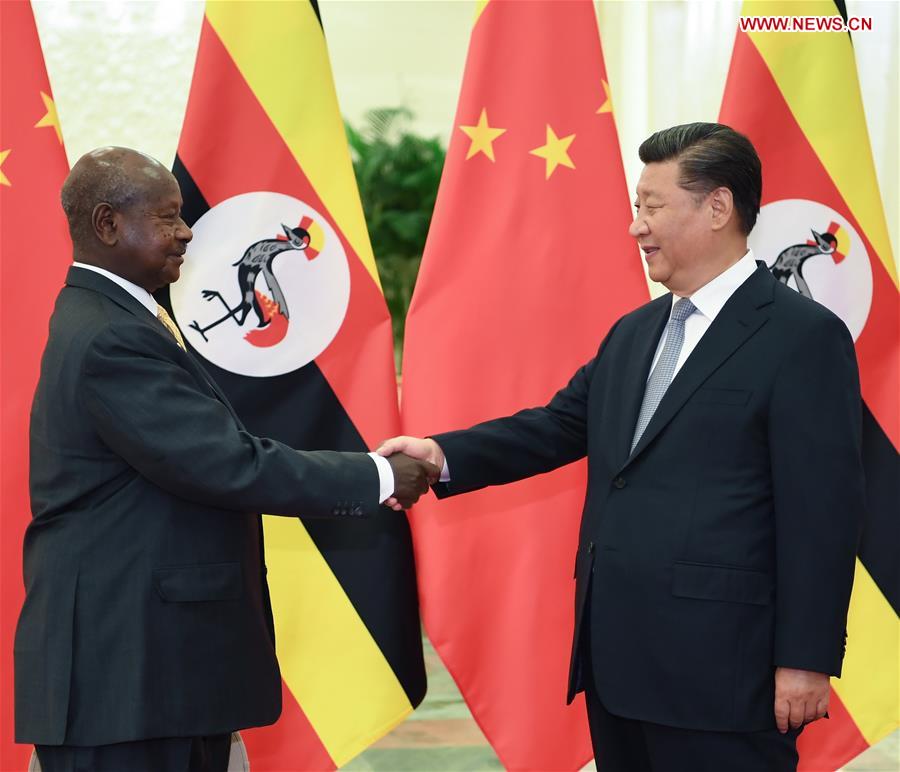Africa and China’s cooperation recedes hundreds of centuries back. Over 600 years ago, East Africa was one of the areas that cross-pollinated with Chinese civilization through interactions with the voyages of Zheng He, one of China’s greatest navigators. Zheng’s navigations to Africa manifested the Chinese traditional philosophy of harmony, a notion that still resonates in Africa-China relations today. I started with a cursory narration of Zheng He’s trips to Africa to lay out a historical context of these two ancient civilizations’ partnership in view of discussing the delayed industrialization in Africa, yet inspired by the quick modernization in China.
We are now in the first quarter of the 21st century – an age increasingly taken over by the fourth industrial revolution, and Africa remains largely a raw material production instead of an industrial production continent. Whereas we make up 18% of the global population, we contribute less than 3% to the global Gross Domestic Product (GDP).
I don’t intend to sound blameful of Africans and African leaders for Africa’s current development burdens as is commonly done by those who reason by analogy. But I cannot escape describing the depressing political anatomy of Africa currently. I believe that Africa is not on its own path to development, since all factors determinant of this have been overshadowed by Western hegemony. In an attempt to walk in the footsteps of Western countries by mimicking their current governance standards, Africa seems to have failed to “catch up” yet the material crisis at hand is that we are still trying to heal from the past, not to catch up with the future.
Chinese perspectives on Africa’s industrial development are key because of the comparative analysis they offer. China has recently trodden the path that Africa is on. Whereas China greatly learnt or reverse-engineered industrial processes from the West, the Chinese retained control over the vision and character of where their country was headed. As for Africa, the elite-capture by Western ideological persuasion and hegemonic institutions like the IMF and World Bank still obtains. Even when Africans genuinely intend to design policies that respond to domestic realities, they are still fraught with Western epistemic prejudices.
The first step to realising our industrial transformation is taking cognizance of who we are and where we want to go. The Chinese are so sure of who they are and where they are headed. They never blink off their course. As for Africans, our social, economic and political agendas remain dictated from Europe or North America. Whereas these agendas were violently determined during colonialism, the legacy of it is that we sincerely believe them and serve their realisation almost willingly today. The average African elite suffers a Stockholm syndrome which makes him/her a subconscious missionary of Western views about Africa which constrains our agency in mapping our development path. We need to decouple from this mental capture in how we view ourselves and our governments if we are to start domestically industrializing our economies. If an African entrepreneur like Joseph Magandaazi Yiga (Jomayi) is struggling, we need to help them save their businesses even if they individually get punished for their legal liabilities. We shouldn’t think of successful African business people like Hamis Kiggundu as fraudsters. This is purely a colonial-victim mindset.
In just 25 years, China sat on the drawing board and designed and executed a policy that saw it become an industrial powerhouse. Had they viewed themselves through Western lenses, all knowledge would guide them on a path that seeks industrialization across a period of not less than a century. Africa should forget industrialization if all our central banks and ministries of finance remain controlled by Bretton Woods knowledge. We rather should sit on the drawing board as China did, and fix our troubles ourselves.
This does not mean that things will work in Africa as they worked in China. But it guarantees that for the first time, things will work out on our terms and we shall dictate our path to development.
We must also exploit the market we have of 1.4 billion people. Whereas we lack a price-competitive manufacturing labour-force, we can build momentum for a skilled work-force by internally trading and consuming each other’s goods. Research by the Harvard Business Review reveals that the share of intra-African exports as a percentage of total African exports is 17%, which is far below the 69% recorded for Europe and 59% for Asia. We cannot advance if we never trade with each other because we are still in the nascent stages of industrialization to capably compete at the global market.
Poor infrastructure in Africa must urgently be improved to reduce the cost of trade. Fluency in market logistics is the path along which industrialization happens. Africa should develop its seaports, roads, airports and railway lines to enable commerce. If it remains more expensive to trade with each other because of the disastrous infrastructure on the continent, we shall remain consumer colonies of other continents’ exports. We should maximumly exploit the Belt and Road Initiative to develop our infrastructure.
One factor has been constant in Africa’s underdevelopment – Western interference. There has been an adverse failure of Western development prescriptions for Africa. I don’t understand why we continue to follow such prescriptions to no avail. Western aid and its attendant ideological hegemony continue to promote economic and policy dependence in Africa. If we never seize control of our economies and have autonomy in thinking and designing policies for our continent, how shall we control our future? In whose hands shall Africa’s destiny lie?
The author is a senior research fellow at the Development Watch Centre.








